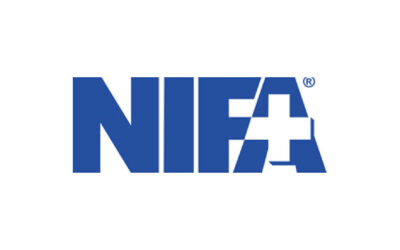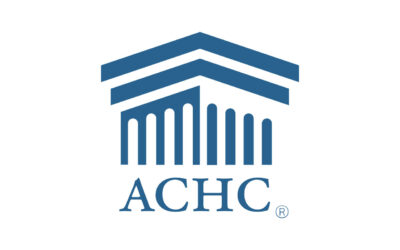The Patient Self-Determination Act, passed by Congress in 1990, requires many healthcare providers to furnish information about advance healthcare directives. Its purpose was to inform patients of their rights regarding decisions on their own medical care, and ensure that these rights are communicated by the healthcare provider – in particular, the rights of the patient to dictate their future care by such means as a living will or power of attorney should they become incapacitated. Since then, many healthcare providers, including ASCs, have struggled with how best to respond to these directives.
What is an Advance Directive?
According to CMS Interpretive Guidelines §416.50(c), “An advance directive is a written instruction, such as a living will or durable power of attorney for healthcare, recognized under State law (whether statutory or as recognized by the courts of the State), relating to the provision of healthcare when the individual who has issued the directive is incapacitated. (See 42 CFR 489.100.) Each ASC patient has the right to formulate an advance directive consistent with applicable State law and to have ASC staff implement and comply with the advance directive, subject to the ASC’s limitations on the basis of conscience. To the degree permitted by State law, and to the maximum extent practicable, the ASC must respect the patient’s wishes and follow that process.”
The CMS Interpretive Guidelines further state: “the ASC must include in the information concerning its advance directive policies a clear and precise statement of limitation if the ASC cannot implement an advance directive on the basis of conscience or any other specific reason that is permitted under State law. A blanket statement of refusal by the ASC to comply with any patient advance directives is not permissible. However, if and to the extent permitted under State law, the ASC may decline to implement elements of an advance directive on the basis of conscience or any other reason permitted under State law if it includes in the information concerning its advance directive policies a clear and precise statement of limitation.”
Advanced Directive Statement of Limitation
Subject to the laws in your state, an example of what a statement of limitation might look like is as follows:
All patients have the right to participate in their own healthcare decisions and to make advance directives or to execute powers of attorney that authorize others to make decisions on their behalf based on the patient’s expressed wishes when the patient is unable to make decisions or unable to communicate decisions. This surgery center respects and upholds those rights.
However, unlike in an acute care hospital setting, the surgery center does not routinely perform “high risk” procedures. Most procedures performed in this facility are considered to be of minimal risk. Of course, no surgery is without risk. You will discuss the specifics of your procedure with your physician who can answer your questions as to its risks, your expected recovery and care after your surgery.
Therefore, it is our policy, regardless of the contents of any advance directive or instructions from a healthcare surrogate attorney in fact, that if an adverse event occurs during your treatment at this facility, we will initiate resuscitating or other stabilizing measures and transfer you to an acute care hospital for further evaluation. At the acute care hospital further treatment or withdrawal of treatment measures already begun will be ordered in accordance with your wishes, advance directive or healthcare power of attorney. Your agreement with this policy does not revoke or invalidate any current healthcare directive or healthcare power of attorney.
If you wish to complete an Advance Directive, copies of the official State forms are available at our facility.
A Do not resuscitate (DNR) is a request not to have cardiopulmonary resuscitation (CPR) in the event of a cardiac or respiratory arrest. An advance directive is not required in order to have a DNR request – advance directives may or may not contain a DNR request. Many ASCs have mistakenly adopted a policy of not honoring a patient’s advance directive when what they actually intended was to not honor a DNR request.
A Living Will is the oldest type of healthcare advance directive. It is a signed, witnessed or notarized document called a “declaration” or “directive.” It is called into use only if the individual has been rendered unable to give informed consent or refusal due to incapacity.
Since an attending physician who may be unfamiliar with the signer’s wishes and values has the power and authority to carry out the signer’s directive, certain terms contained in the document may be interpreted by the physician in a manner that was not intended by the signer.
Family members and others who are familiar with the signer’s values and wishes have no legal standing to interpret the meaning of the directive.
These deficiencies led to the development of a second generation of advance directives – the Healthcare proxy appointment or Medical power of attorney.
A Durable Power of Attorney for Healthcare is a signed, witnessed (or notarized) document in which the signer designates an agent to make healthcare decisions if the signer is temporarily or permanently unable to make such decisions. It does not, however, require that the signer have a terminal condition. The signer should carefully discuss his/her values, wishes and instructions with the agent before and at the time the document is signed. These discussions may also continue after the document is signed. It is important that the agent be willing and able to exercise his/her authority to make certain that the signer’s instructions are respected.
The main benefit of second-generation advance directives is that the appointed representative can make real-time decisions in actual circumstances, as opposed to advance decisions framed in hypothetical situations, as recorded in a living will. This newer form of advance directive has been well received with supporting legislation in most states.
The Five Wishes
The Five Wishes combines a living will and healthcare power of attorney – as well as addressing matters of comfort care and spirituality. Wishes 1 and 2 are both legal documents. Once signed, they meet the legal requirements for an advance directive in 42 states. Wishes 3, 4 and 5 are unique to the Five Wishes, in that they address matters of comfort care and spirituality, adding forgiveness and final wishes.
1. The Person I Want to Make Care Decisions for Me When I Can’t
This section is an assignment of a healthcare agent (also called proxy, surrogate, representative or healthcare power of attorney). This individual makes medical decisions on the signer’s behalf if they are unable to speak for themselves.
2. The Kind of Medical Treatment I Want or Don’t Want
This section is a living will — a definition of what life support treatment means to the patient, and when they would or would not want it.
3. How Comfortable I Want to Be
This section addresses matters of comfort care — what type of pain management the patient would like, personal grooming and bathing instructions, and whether they would like to know about options for hospice care, among others.
4. How I Want People to Treat Me
This section speaks to personal matters, such as whether the patient would like to be at home, whether they would like someone to pray at their bedside, etc.
5. What I Want My Loved Ones to Know
This section deals with matters of forgiveness, how they wish to be remembered and final wishes regarding funeral or memorial plans.
To recap, remember that advanced directives are not just DNR orders. Adult patients should be encouraged to have an advanced directive, and ASCs should discuss advanced directives with their patients prior to admission. Remember also that state guidelines may vary, so work with a legal advisor to make sure you are complying with the state regulations and check with your professional liability insurance carrier for additional guidance.
In a recent survey by the Pew Research Center that explored whether doctors feel they should do everything in their power to prolong a life, results were mixed – some physicians strongly opposed; some highly supportive. What the study findings did reveal, however, was that patients want more control over decision-making about their care. Advanced directives are an effective way to make that happen.
About the Author
Ray Grundman has been involved in ambulatory healthcare for over 30 years in a variety of roles, as a clinician, educator and administrator, practicing as a board certified family nurse practitioner, medical group practice administrator, and founder and executive director of several surgery centers. He is the Senior Director for External Relations at AAAHC and is a member of the AAAHC surveyor training faculty and an active surveyor.









